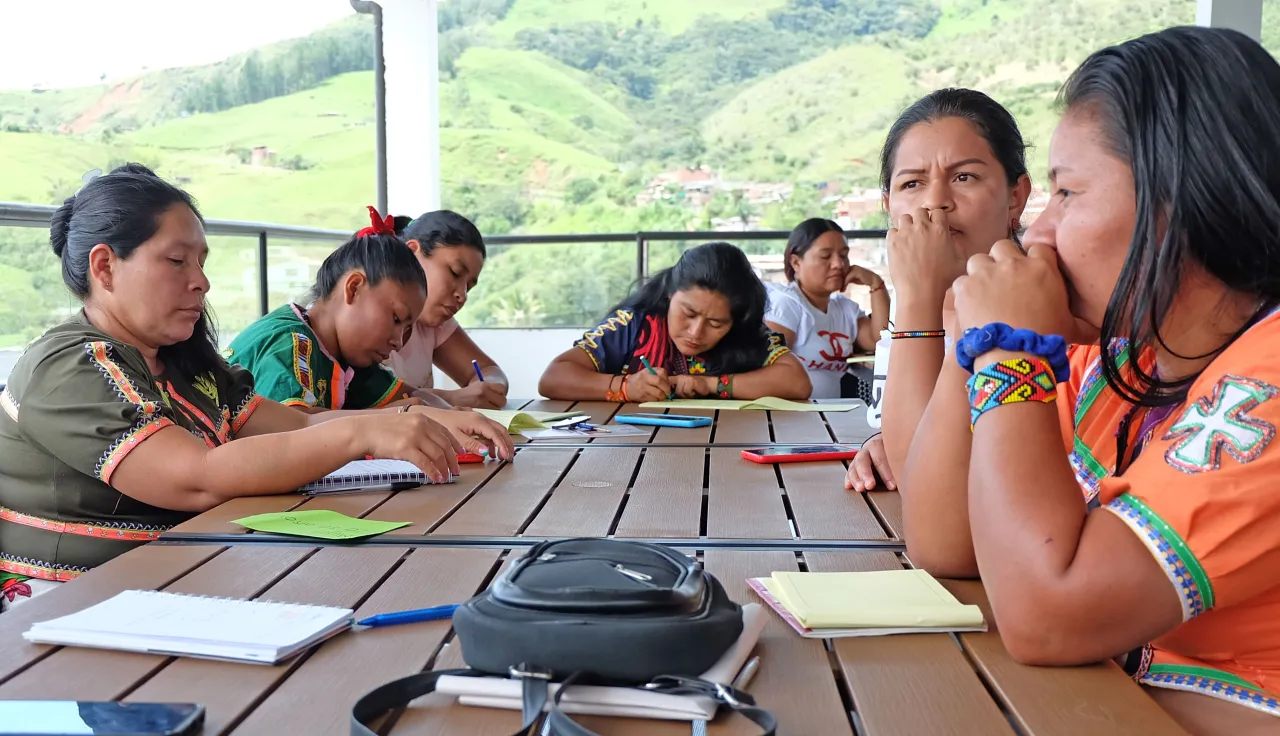Colombia - Victims/survivors of sexual violence: Invisibility and a lack of protection

We are also worried about the incidence of sexual violence in the areas most affected by armed conflicts and violence. This type of violence often goes unseen. Many victims/survivors choose not to report sexual violence, out of fear of retaliation, shame or guilt. As a result, the figures do not reflect the real magnitude of this phenomenon. In addition, a large number of cases go unreported because people distrust the institutions or face barriers to accessing the state assistance pathway.
Despite this underreporting, in 2024 our work in the territories showed that sexual violence related to the armed conflicts was on the rise. This violence has physical and psychological effects on not only the victims/survivors, but also on their families and communities. In numerous cases, armed groups used it to intimidate, punish, demonstrate their power and destroy the social fabric.
They use rape and other forms of sexual violence, such as sexual harassment, forced nudity, survival sex and sexual slavery, all of which profoundly affect the lives of victims/survivors and the environment in which they live. In some cases and communities, these acts are normalized and not recognized as sexual violence, making it easier for perpetrators to carry them out. This normalization occurs when communities draw some advantage from the situation, and so they do not take timely action to prevent or mitigate the sexual violence.
Because it is hard to collect accurate data and measure the magnitude of this tragedy, sexual violence receives less attention than other humanitarian consequences of armed conflict. The cultural and social characteristics of the communities in which it occurs may also prevent people from addressing the violence directly. Moreover, the workers responsible for responding to sexual violence do not always have sufficient training to provide clear guidance to the victims/survivors, and there may be barriers to accessing care, arising from prejudice gender-based discrimination and other issues.
The impact of sexual violence is devastating and must be addressed as a priority. We must give the problem greater visibility, strengthen protection mechanisms and guarantee comprehensive care for victims/survivors. Above all, we must not only react to sexual violence, but also take preventive action to reduce its incidence.



